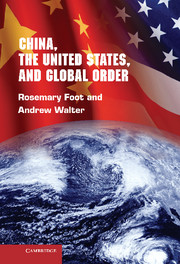1 - Introduction
Norms and Global Order
Published online by Cambridge University Press: 05 June 2012
Summary
The United States and China are the two most important states in the international system. The global economic crisis of 2008–09 has, unusually in the post-1945 period, hurt the United States disproportionately in the short term and may accelerate an erosion of its military, economic, and cultural preponderance. Many now see China as the major beneficiary, but the longer-term consequences of this crisis are very uncertain. America’s primacy in global politics and economics, including its position in many global institutions, remains considerable, and its impact on key global issues – either through its neglect of or participation in their management or resolution – will remain a central influence upon the evolving global order for decades to come.
At the same time, China’s influence in global markets, its military modernization, and active diplomacy in all major regions of the world have demonstrated its growing potential to shape the global order of the twenty-first century and to reduce US preponderance in certain contexts. China is the state commonly viewed as most likely to be both willing and able to expand these areas of challenge in the future. There is a strong perception in both Beijing and Washington that they are each other’s most important interlocutor on a range of crucial issues, arising as much from their interdependence as from the competitive nature of their relationship. Although it is uncertain as to how the global economic crisis will affect their long-run relative positions, it has reinforced the centrality of their bilateral relationship within the contemporary global order.
- Type
- Chapter
- Information
- China, the United States, and Global Order , pp. 1 - 30Publisher: Cambridge University PressPrint publication year: 2010

